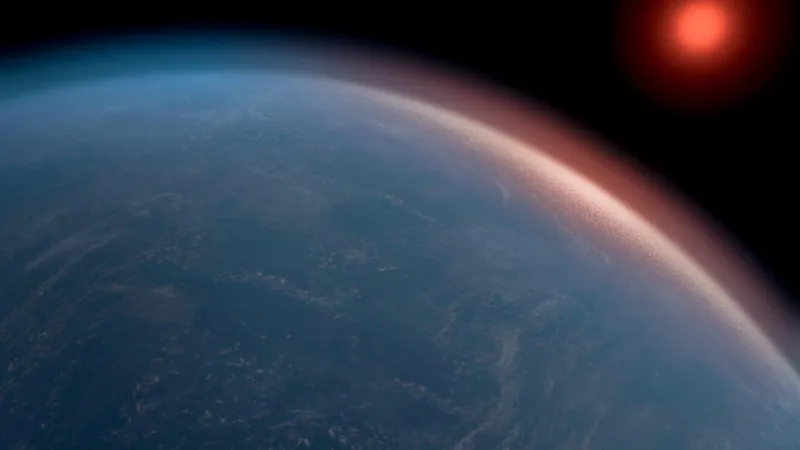
Are We on the Brink of Discovering Alien Life? Astronomers Unveil Groundbreaking Findings on Planet K2-18b
2025-04-28
Author: Ying
Astronomers Spark Hopes for Alien Life on K2-18b
In a thrilling development, astronomers are inching closer to uncovering compelling evidence that could indicate life on the distant exoplanet K2-18b. This research, spearheaded by Cambridge University, utilizes the cutting-edge James Webb Space Telescope data to potentially confirm that the signs of life observed are more than mere coincidences.
A Chemical Clue from the Cosmos
The team has detected chemical signatures of dimethyl sulfide (DMS) and dimethyl disulfide (DMDS) on K2-18b. These compounds are primarily produced by living organisms, particularly phytoplankton in Earth's oceans. The findings are described as the most substantial evidence to date that extraterrestrial life could exist beyond our solar system.
A Game-Changer for Exoplanet Research
Published in the Astrophysical Journal Letters, this study hints at the presence of expansive oceans on K2-18b, a prospect that scientists have long yearned to explore. The researchers emphasized that the concept of 'hycean worlds'—which feature vast oceans and hydrogen-rich atmospheres—could significantly broaden the quest for habitable environments beyond Earth.
Skepticism Surrounds the Findings
Not all researchers are convinced of the potential breakthrough. Corey S. Powell, a science writer, voiced caution on Bluesky, suggesting that the excitement surrounding the discovery is tempting many respected outlets into potentially misleading narratives. He urged that alternative non-biological sources for DMS must be examined.
K2-18b: A Distant World Full of Potential
Located 124 light-years away, K2-18b is more than eight times the mass of Earth but smaller than Neptune. This search for even the most rudimentary forms of life heightens hopes that there might be other Earth-like planets with the right conditions to support life as we know it. The team is optimistic that ongoing studies with the James Webb Space Telescope will provide further clarity.
Proceeding with Caution
Christopher Glein, a planetary researcher and lead scientist at San Antonio's Southwest Research Institute, emphasizes the need for caution regarding these preliminary findings. While he acknowledges intriguing data, he insists that additional research is required to validate whether these molecules genuinely signify life or merely showcase fascinating chemical processes.
The Search for Life Continues
As the excitement surrounding K2-18b unfolds, Glein reminds us of the importance of corroborating evidence. He draws an analogy between proving the existence of life and a courtroom trial, where a convincing case necessitates multiple lines of independent evidence. While this discovery may represent Step 1, the journey to uncovering the truth about life on K2-18b remains just beginning.




 Brasil (PT)
Brasil (PT)
 Canada (EN)
Canada (EN)
 Chile (ES)
Chile (ES)
 Česko (CS)
Česko (CS)
 대한민국 (KO)
대한민국 (KO)
 España (ES)
España (ES)
 France (FR)
France (FR)
 Hong Kong (EN)
Hong Kong (EN)
 Italia (IT)
Italia (IT)
 日本 (JA)
日本 (JA)
 Magyarország (HU)
Magyarország (HU)
 Norge (NO)
Norge (NO)
 Polska (PL)
Polska (PL)
 Schweiz (DE)
Schweiz (DE)
 Singapore (EN)
Singapore (EN)
 Sverige (SV)
Sverige (SV)
 Suomi (FI)
Suomi (FI)
 Türkiye (TR)
Türkiye (TR)
 الإمارات العربية المتحدة (AR)
الإمارات العربية المتحدة (AR)